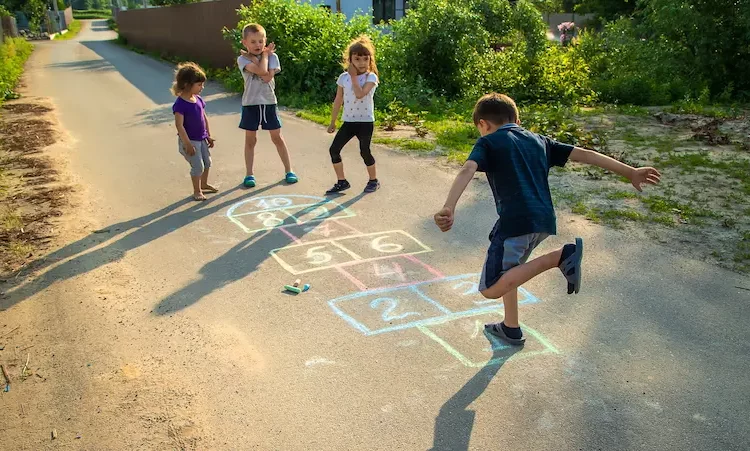Playful Revival:
Why rediscovering childhood games is key to a happier life, play is often viewed as a trivial activity, something to do when “there’s nothing better to do. Yet, it is integral to human development, especially in childhood, and it can also have lasting benefits into adulthood. Rediscovering childhood games offers more than just a nostalgic trip down memory lane; it can rejuvenate our creativity, social connections, and mental well-being.
Here’s why play matters and why we should make time for it.
- Cognitive And Emotional Development
Play is a critical element in early childhood development. Games like tag, hide-and-seek, or even simple pretend play encourage problem-solving, decision-making, and imaginative thinking. As children learn to navigate rules and scenarios, they improve their cognitive abilities. Moreover, these experiences help children understand emotions, cope with stress, and build empathy as they interact with others.
- Social Skills And Cooperation
Childhood games often involve working together, whether through teamwork in games like “Red Rover” or negotiating rules in a game of “Simon Says.” These interactions teach important social skills such as cooperation, negotiation, and conflict resolution. As adults, many of us find that these fundamental skills still apply in both personal and professional environments.
- Creativity And Innovation
Play encourages creativity. Activities like building forts, drawing, or crafting imaginary worlds allow children—and adults—to think outside the box. These experiences enhance our ability to innovate and approach challenges from unique perspectives. Rediscovering such simple, spontaneous play can help reignite a sense of wonder and possibility.
- Stress Relief And Mental Health
In a world of constant pressures, play is an antidote to stress. Whether it’s playing a game of hopscotch, engaging in a board game with friends, or simply enjoying outdoor activities, play offers an opportunity to unwind, focus on the present moment, and boost endorphins. For adults, taking time to engage in playful activities can reduce anxiety and foster a sense of relaxation and joy.
- Physical Activity And Health
Many childhood games are physically engaging—running, jumping, dancing, or climbing. These activities help develop motor skills and promote physical health. As we get older, we often forget how much fun movement can be, but engaging in playful physical activities can improve overall fitness, coordination, and well-being. Reintroducing games like tag, catch, or even dancing can be a fun way to stay active.
- Fostering Stronger Bonds
When we play, we form deeper connections with those around us. Childhood games often involve spending time with friends, siblings, or family, strengthening relationships and creating memories. Even as adults, taking time to play together—whether through a game night or outdoor sports—can deepen our bonds and provide much-needed moments of joy and laughter.
- Preserving A Sense Of Wonder
In adulthood, we can lose the sense of curiosity and wonder that comes naturally in childhood. Play helps keep this sense alive. Whether it’s through games, creative activities, or even exploring new hobbies, play reminds us to see the world with fresh eyes, allowing us to remain open to new experiences and possibilities.
Conclusion
Rediscovering childhood games isn’t just about revisiting the past; it’s about reawakening a fundamental part of human experience that is essential for growth, connection, and well-being. Play is a vital tool for maintaining mental, physical, and emotional health, and it’s something that everyone, no matter their age, can benefit from. So, take a break from the busyness of life and enjoy a game—you might just find it’s the perfect way to refresh your body, mind, and spirit.
We’ve got the edge. Get real-time reports, breaking scoops, and exclusive angles delivered straight to your phone. Don’t settle for stale news. Join LEADERSHIP NEWS on WhatsApp for 24/7 updates →
Join Our WhatsApp Channel










